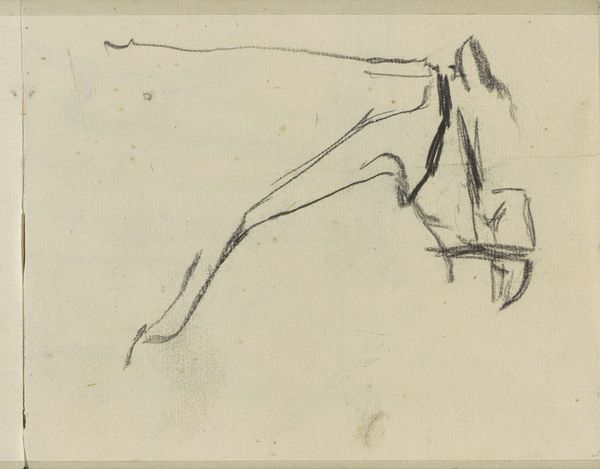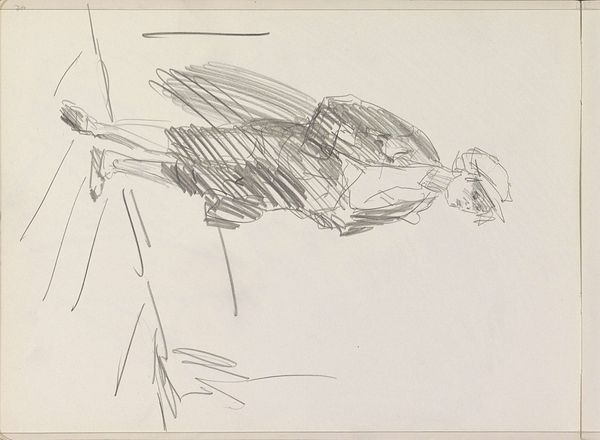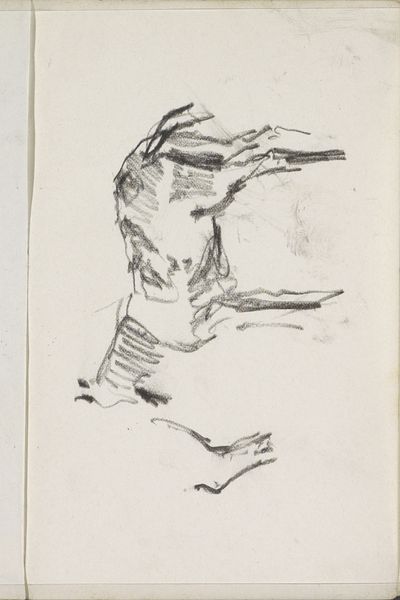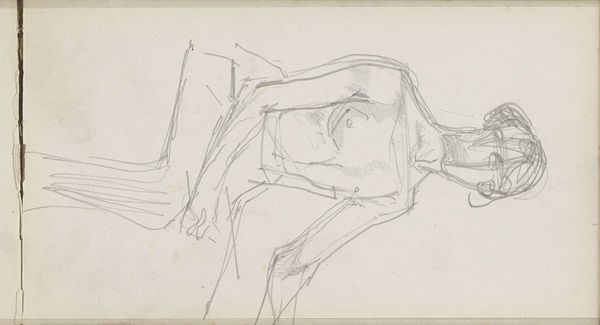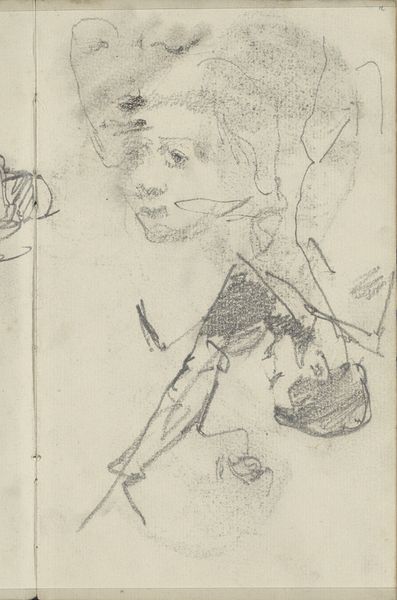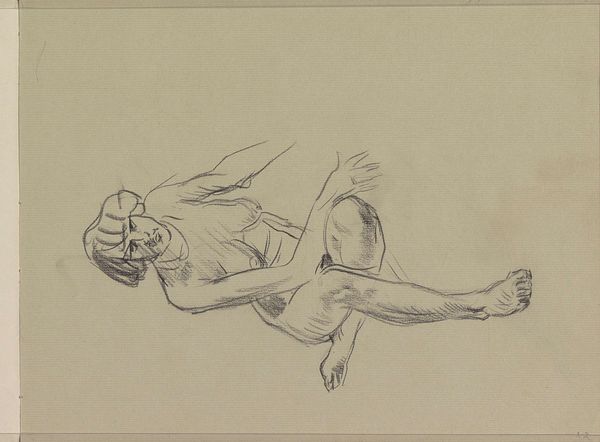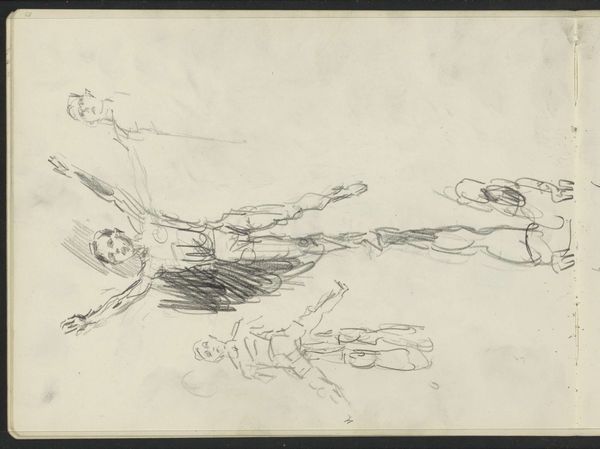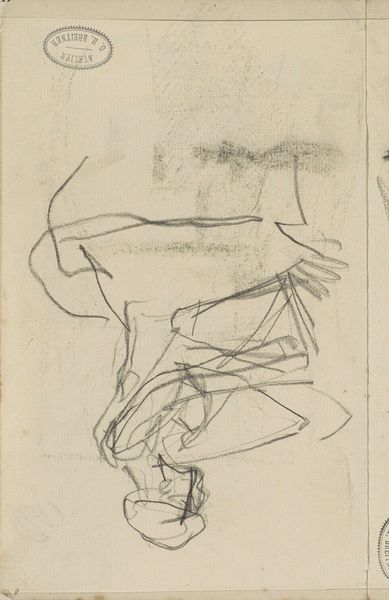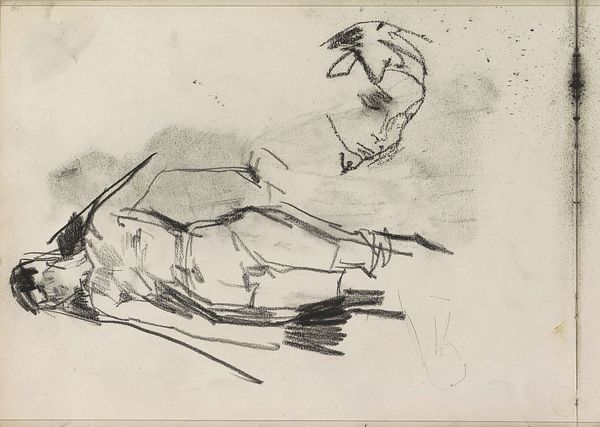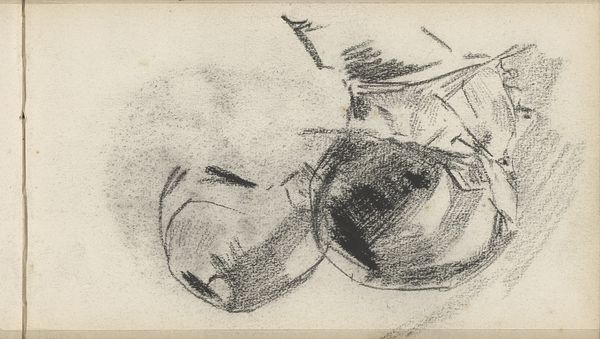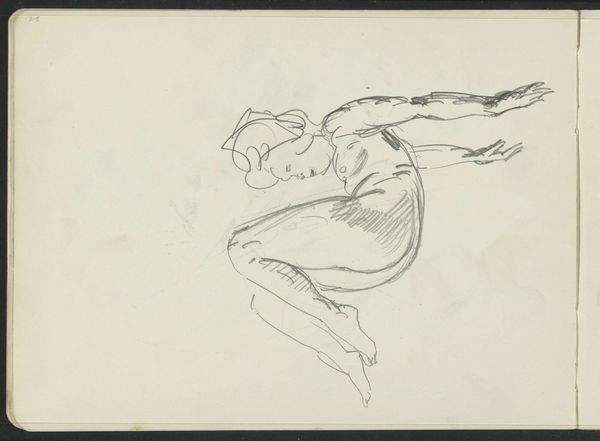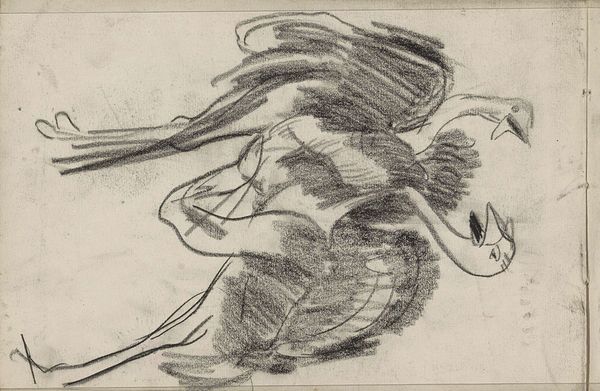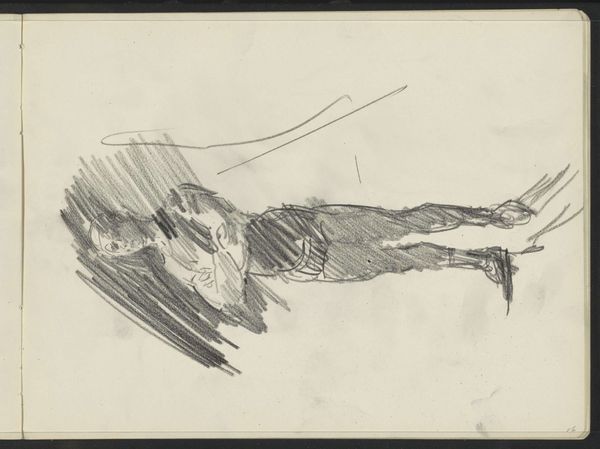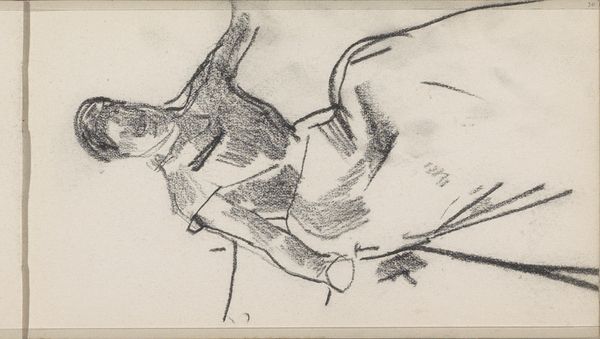
drawing, pencil
#
portrait
#
drawing
#
amateur sketch
#
light pencil work
#
impressionism
#
pen sketch
#
figuration
#
personal sketchbook
#
idea generation sketch
#
ink drawing experimentation
#
pen-ink sketch
#
pencil
#
line
#
sketchbook drawing
#
sketchbook art
#
initial sketch
Copyright: Rijks Museum: Open Domain
Editor: This is "Vrouw met uitgestoken arm," or "Woman with outstretched arm," a pencil drawing made by George Hendrik Breitner around 1886 to 1890, now at the Rijksmuseum. I'm struck by how informal it is; you can almost see the artist working through his ideas. What do you see in this piece? Curator: It's precisely that informal quality that makes it interesting. Note how Breitner isn't concerned with photorealistic representation, but instead explores the gestural possibilities of line. Observe the energetic hatching and cross-hatching creating volume and shadow. Editor: It’s almost like he's capturing a fleeting moment. But why prioritize the rough sketch over a finished product? Curator: The sketch, in its rawness, reveals the artist’s thought process, the fundamental structure before layers of refinement obscure it. Consider the use of line – it's not merely descriptive but constitutive. The line itself creates the form. Semiotically, we might say the drawing signifies not just a woman, but also the act of seeing and recording. Do you agree? Editor: That makes sense. So the value isn't just in what's depicted, but how it's depicted, and what the medium reveals about the artist's interaction with the subject? Curator: Precisely. It draws attention to the material quality of artmaking, moving beyond mimesis to explore the inherent expressive potential of line and form. The incomplete nature is deliberate, emphasizing process over product. Editor: That gives me a completely new perspective! I initially saw it as just a quick sketch, but now I see how Breitner used the drawing itself as a language. Curator: Indeed. Analyzing the structural elements allows a richer engagement than just considering the subject matter alone. The method embodies its own statement.
Comments
No comments
Be the first to comment and join the conversation on the ultimate creative platform.
